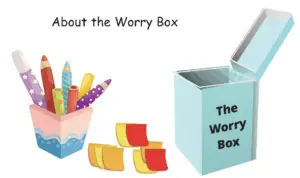“Anybody can become angry — that is easy, but to be angry with the right person and to the right degree and at the right time and for the right purpose, and in the right way — that is not within everybody’s power and is not easy.” Aristotle
“Speak when you are angry and you will make the best speech you will ever regret.” Ambrose Bierce
“The best fighter is never angry.” Lao Tzu
“It is wise to direct your anger towards problems — not people; to focus your energies on answers — not excuses.” William Arthur Ward
I was listening to a youg friend talking the other day and couldn’t help but smile. His voice which normally had an air of youthful authority, was suddenly direct even and just a tiney bit faster than normal. Of course he had an important message to give so I could see why his words were swift.What surprised me was how different he sounded. You could hear his maturity in his speech. There was no need for his usual pushy and aggressive attitude. His voice had changed to a deliberate straightforward mode. I smiled just recalling how just a few years had past and he had definitely matured.
It made me understand how our tone, loudness, tempo, infractions, emphasized letters, drawled words and pitch made any sentence more than a sentence. It was as if it told our thoughts, age dilemma fear and mood. I believe that is why computers and technology in general will never replace the human voice. Somehow feelings, emotions attitudes and thoughts go into our every monologue and spoken interaction. We can’t hide our emotions.
Children know immediately when parents are angry about anything. The stern clipped sentences that range a bit louder than normal, at least at the beginning of the episode, tell the kids to scatter. Dad or mom is searching for something or upset about anything and they don’t want to be the unwilling victims of a parents’ foul mood.
When parents review a bad report card they hesitate and one can envision the anger rising up their necks and into their angry red faces. Of course the child is waiting for the explosion. The parent may begin with an even slow voice but the pace picks up quickly as fast as the loudness increases. Within seconds like a rocket the words tumble out so fast the child is unable to comprehend the meaning that is being delivered. What the child does know is to simply listen and refrain from interruptions. This is accomplished and the child is at times punished grounded and sent to their room.
I remember listening to the arguments between my older brother and our father. Of course my brother had the mouth that would not remain still. As much as I admired his courage, to this day I never understood his inability to learn the importance of silence. I would watch my dad’s face sternly focus on my brother while words of wrath tumbled from his mouth. Whenever there was a pause my brother chimed in with some sort of a retort then blast off, my dad was furious.
I could observe my brother almost chuckling at the power he had to send his dad to the moon so easily. I on the other hand held my breath and hoped the incident would be short lived. Otherwise life would be difficult for all of us until the next day. I remember my father’s almost breathless words stumbling out. The voice was almost inaudible. My dad’s body was always rigid at this point and his neck muscles stood out pulsing. How my brother thought this was funny is beyond my comprehension.
I recall being at the beach one day and watching a family in front of us interact. The young teen was asked to get a drink for his father from the cooler. The boy went to retrieve the item. When he came back his father was enraged. The boy had brought a soda rather than a beer. The man swatted the boy on th back of the head almost sending him crashing to the ground. The man snarled like a dog at his son. I remember not understanding the words but the snarls came through loud and clear. The tone was strong and gruff. I remember glancing up at the man from my head down position. I was afraid to make eye contact with this man. I was young but he instilled fear with his voice. In one quick motion the teen scrambled back to the cooler and grabbed a beer. He handed it to his father having to stretch his arm to be within reach. I couldn’t blame the young man because he didn’t want another hit on the head.
One day as I walked to school in Boston, I was behind a young mother and her two young girls hardly more than four or five. The mother was in a hurry. Her sturdy fast paced steps, swinging arms, along with her grip on her handbag gave one the impression of someone on a mission. The kids were obviously having trouble keeping up. The woman kept urging them to walk faster and she increased her rate of speed. Her voice was loud and her words were curt.
Inevitably the youngest child slipped and fell on the concrete drawing blood to both knees. The mother was angry and started to scream at her youngest daughter. The crying child immediately clammed up while the older child stop attempting to help her sister to her feet. The three continued their walk with one change. The youngest child was limping and trailing behind. I had to make a turn and lost site of the three individuals. I won’t forget the intense look of the mother and her terse words spilling through her clenched teeth. No wonder the child just got to her feet and continued to move on.
I wonder at adults who are parents or work with kids. I hope they realize how much of an impact both good and bad, they have on kids. The impressions they leave are carved into the spirit in a good or detrimental way. Children are the helpless recipients of anger frustration, regret, and much more. They have no where to run and no escape. Living in fear for some kids is a normal state of affairs.
We put people in jail for simple infractions yet we allow serious harm to happen to kids before we step in as a society. I will never understand this. At the sake of embarrassing parents, we should come to the aid of families in need. Unless we find the root of problems there will be no remedy. If one requires an antibiotic but is only given cough medicine, the infection continues. Answers at most times are simple.
I know the voice has the power to crush, disintegrate, relieve, or bring comfort and love. The words are not as important as the tone, loudness tempo distinctness emphasis on words and expressions on the face of the person delivering the message. Perhaps we should think about the messages we are sending to our kids and to other people. Probably we never thought about the changes in our voices nor the facial changes and bodily changes expressed by our built up emotions.
After growing up with a multifaceted person I have learned how to read most people. I get a sense of their mood. We all get angry but allowing it to take over our minds is inexcusable. The next time we feel our fury rising, we might think about the changes taking place in our own bodies. Take some deep breaths and count to one hundred if need be. It might help us to better control our own rage. It is always within our power to change things. We simply need to be aware of how we affect others and the impact of our anger. Making happier and brighter days for our own families and those of others is crucial to everyone’s well-being.
“Anger is an acid that can do more harm to the vessel in which it is stored than to anything on which it is poured.” Mark Twain
“Don’t hold to anger, hurt or pain. They steal your energy and keep you from love.”
Leo Buscaglia“If you spend your time hoping someone will suffer the consequences for what they did to your heart, then you’re allowing them to hurt you a second time in your mind.” Shannon Alder
“Your perspective on life comes from the cage you were held captive in.” Shannon Alder
“Anger makes you smaller, while forgiveness forces you to grow beyond what you are.” Cherie Carter Scott
“Before you can live a part of you has to die. You have to let go of what could have been, how you should have acted and what you wish you would have said differently. You have to accept that you can’t change the past experiences, opinions of others at that moment in time or outcomes from their choices or yours. When you finally recognize that truth then you will understand the true meaning of forgiveness of yourself and others. From this point you will finally be free.” Shannon L. Alder


